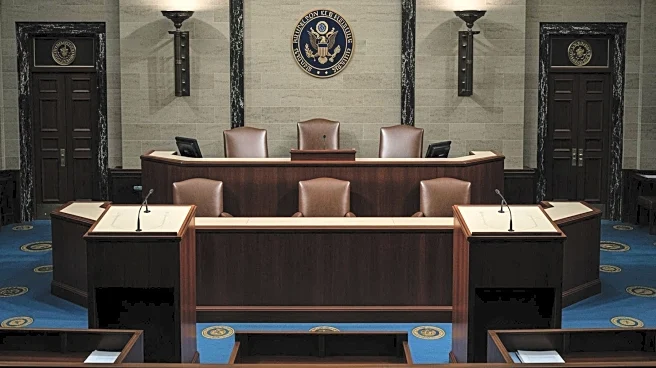What's Happening?
The Trump administration is managing the government shutdown by delaying some of its most painful impacts, such as layoffs for federal workers, while Congress remains at a standstill. The administration has
taken steps to cover military paychecks and maintain essential services, reducing pressure on lawmakers to negotiate. Speaker Mike Johnson has stated that the House will not return until Senate Democrats agree to a stopgap funding bill. Senate efforts to end the shutdown have failed, with Democrats arguing that the administration's moves are illegal and prolonging the impasse.
Why It's Important?
The administration's approach to managing the shutdown impacts is significant as it alters the traditional dynamics of congressional negotiations. By mitigating immediate pain points, the administration reduces the urgency for a legislative solution, potentially prolonging the shutdown. This strategy affects federal workers, public services, and the broader economy, with potential long-term consequences for public policy and political dynamics. The situation highlights the administration's influence over congressional actions and the challenges of resolving legislative impasses.
What's Next?
The shutdown is likely to continue as both parties remain entrenched in their positions. Democrats are using their minority leverage to force a debate on health care subsidies, hoping to pressure Republicans into negotiations. The upcoming open enrollment period for the Affordable Care Act could act as a catalyst for change, as significant premium spikes are expected if Congress does not act. The administration's unilateral actions face legal challenges, which could influence the shutdown's trajectory. The situation remains fluid, with potential developments hinging on Trump's willingness to engage directly with congressional leaders.










